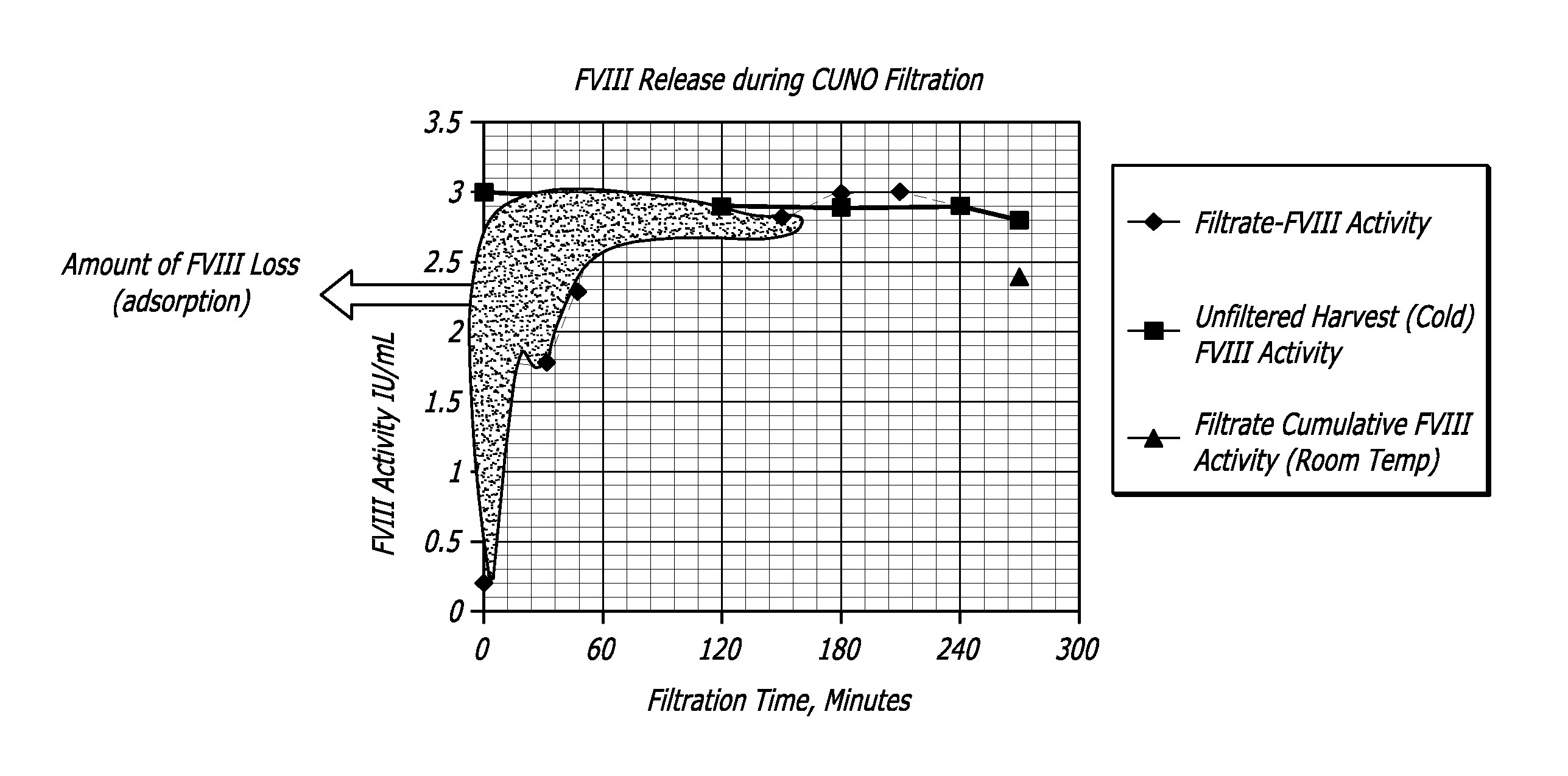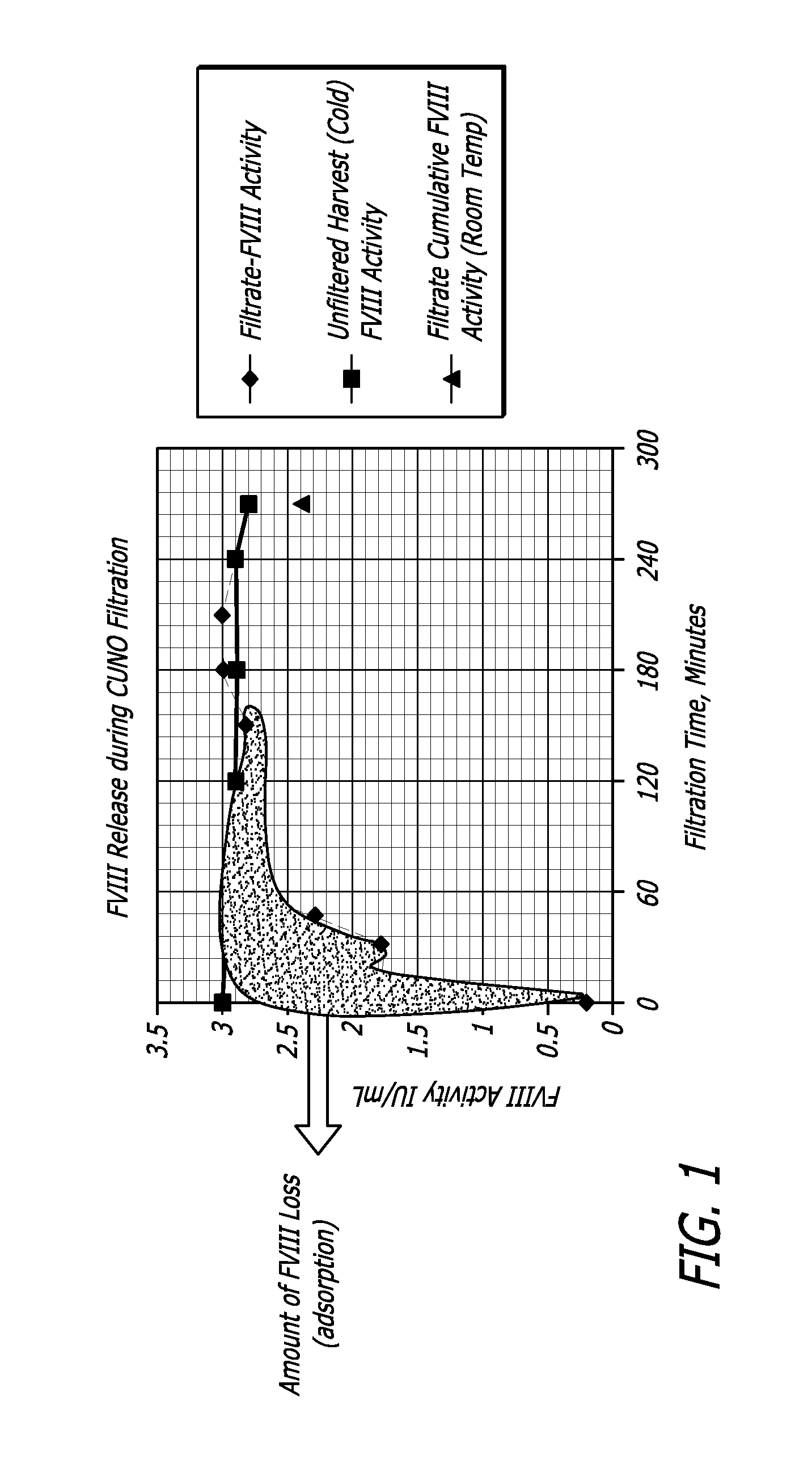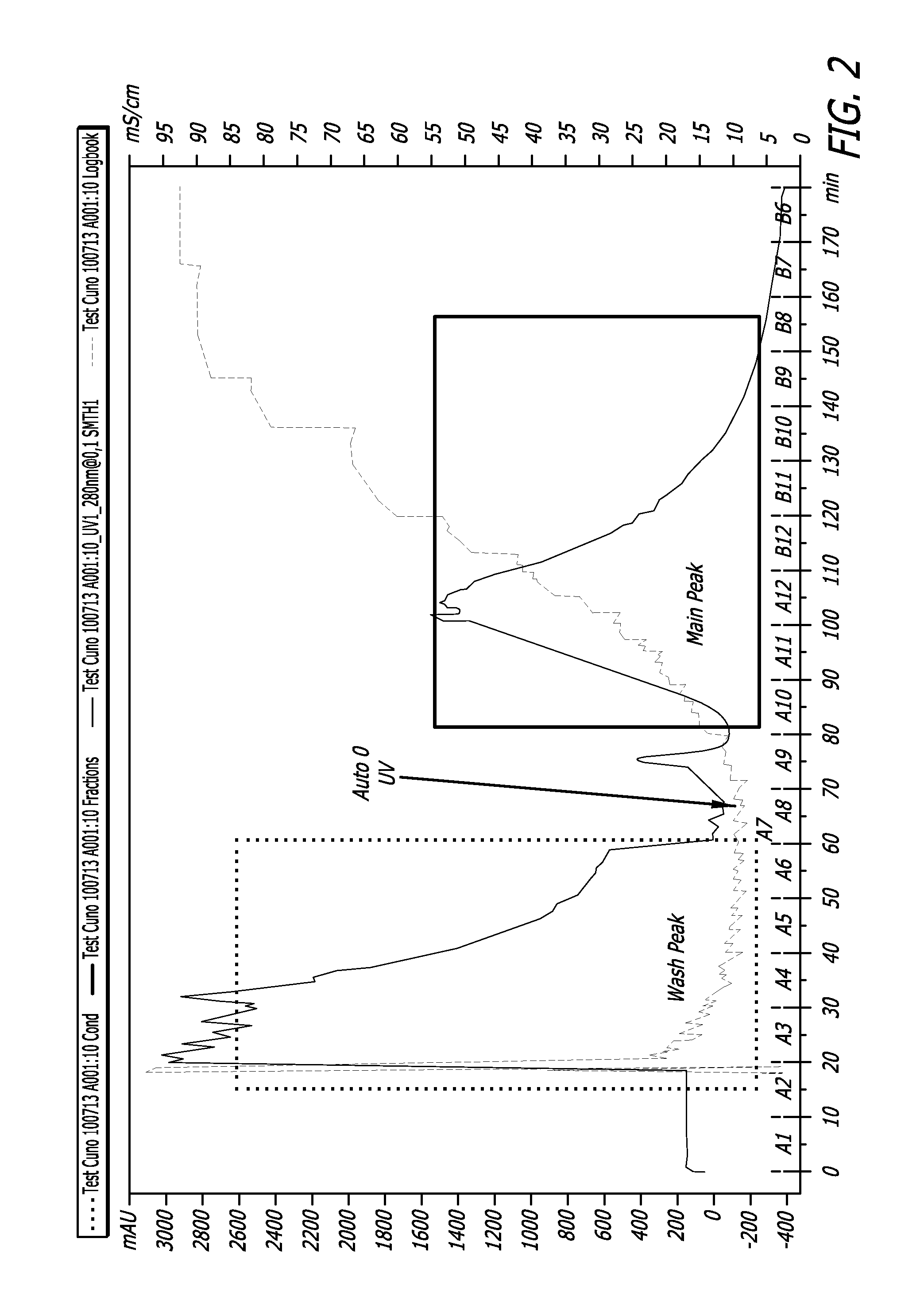Systems and methods to increase protein yield from recombinant manufacturing processes
a technology of recombinant and manufacturing processes, applied in the field of systems and methods that increase the protein yield from recombinant manufacturing processes, can solve the problems of difficult and expensive growth, inability to produce many complex proteins in a functional form, and relatively difficult purification of non-secreted proteins from prokaryotic or mammalian cells, so as to improve the efficiency and cost of manufacturing therapeutic proteins, increase protein yield, and increase protein yield
- Summary
- Abstract
- Description
- Claims
- Application Information
AI Technical Summary
Benefits of technology
Problems solved by technology
Method used
Image
Examples
example 1
[0063]A 5 liter continuous culture was established in a glass bioreactor, using a CHO cell line transformed to co-express Factor VIII and von Willebrand Factor. A suitable cell line is disclosed in U.S. Pat. Nos. 5,250,421 and 6,100,061 both of which are incorporated by reference herein for their teachings regarding the same. The culture medium was:
[0064]
DMEM / Ham's F12 50 / 5011.76 g / kgL-glutamine0.6 g / kgEthanolamine1.53 mg / kgSynperonic F680.25 g / kgNaHCO32 g / kg 4 g / kgSoya peptone C17.02 μg / kg (ppb)CuSO4•5H20(includes constant contribution of 1.3 mg / kgfrom DMEM / F12 powder). This correspondsto 4.3 ppb copper in medium (nb: ratio MWCuSO4•5H20 / MW Cu = 3.931.)
example 2
[0065]A scaled down version of the depth filter used at appropriate production scales was used in the Examples described herein. Based on the principle of maintaining the cell culture harvest flux of 101 L / m2 / hr, the flow rate required for a scaled down 25 cm2 depth filter was calculated to be 4 mL / min.
[0066]A CUNO 30SP filter containing cellulose, fiberaid and a resin that imparts a positive charge to the filter's surfaces was flushed with 500 mL water for injection and autoclaved for 30 minutes at 123 C. to simulate the steam in place process employed for production filters. Further the filter was purged with air to remove any traces of water that could dilute the product released during the initial stages of the filtration.
[0067]The cell culture harvest from the model 5 L bioreactor process of Example 1 was filtered through the small scale filters. The filtered cell culture supernatant was collected at regular time intervals (0, 5, 15, 30, 60 240 minutes). These samples were subs...
example 3
[0068]Depth filters used in Example 2 procedures were treated as a chromatographic column and the bound rFVIII was recovered. Particularly, a pseudo chromatographic method was devised where the filter membrane, containing bound protein of interest (rFVIII) and other impurities (host cell proteins, DNA etc) was treated as a stationary phase. More particularly, the positively-charged depth filter had bound the negatively-charged protein of interest, acting as an anionic exchange resin. A high salt elution DO2 buffer was used to preferentially unbind the protein of interest (rFVIII) thereby releasing it from the matrix of the depth filter.
[0069]The DO2 buffer is rich in sodium chloride salt (4M) with a conductivity of above 400 mS / cm. The buffer was diluted to 100 mS / cm using Water For Injection. The DO2 buffer can also be used to cleave rFVIII-vWF complexes that are obtained due to co-culturing of both proteins in the protein expression.
[0070]An AKTA pilot skid with consists of pumps ...
PUM
| Property | Measurement | Unit |
|---|---|---|
| conductivity | aaaaa | aaaaa |
| conductivity | aaaaa | aaaaa |
| conductivity | aaaaa | aaaaa |
Abstract
Description
Claims
Application Information
 Login to View More
Login to View More - R&D
- Intellectual Property
- Life Sciences
- Materials
- Tech Scout
- Unparalleled Data Quality
- Higher Quality Content
- 60% Fewer Hallucinations
Browse by: Latest US Patents, China's latest patents, Technical Efficacy Thesaurus, Application Domain, Technology Topic, Popular Technical Reports.
© 2025 PatSnap. All rights reserved.Legal|Privacy policy|Modern Slavery Act Transparency Statement|Sitemap|About US| Contact US: help@patsnap.com



